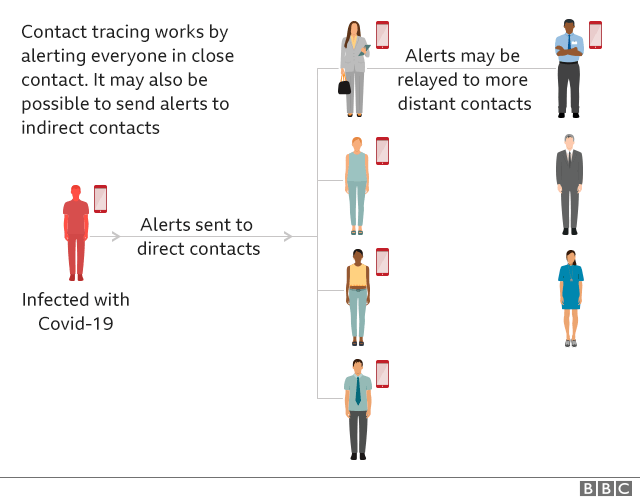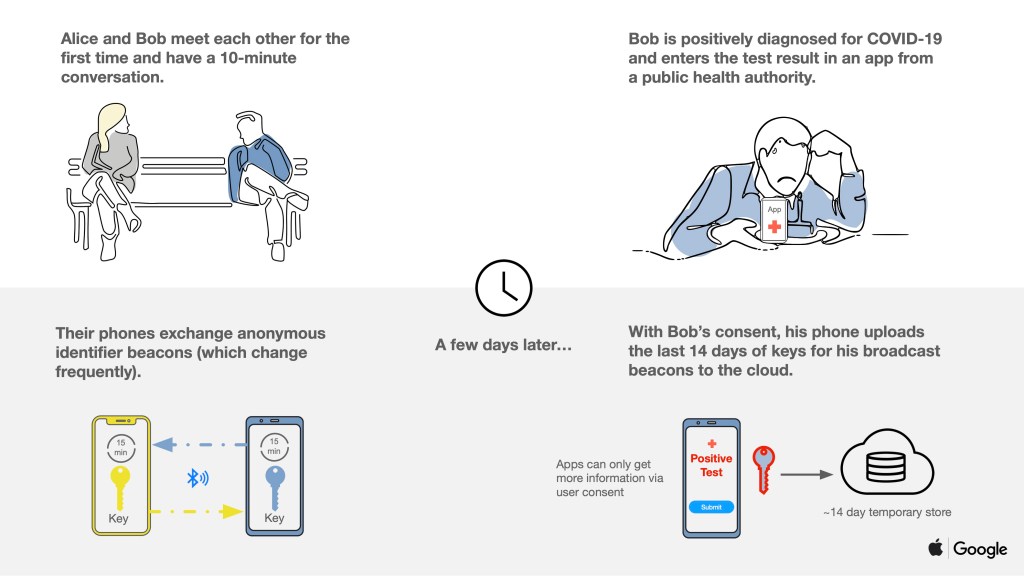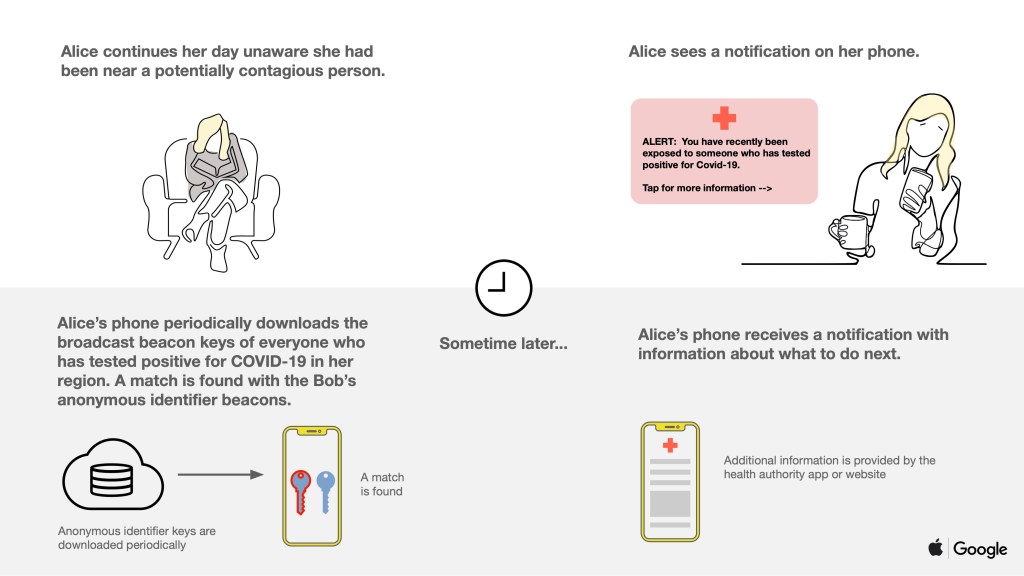Share this Post
As governments, scientists, and medical professionals around the globe struggle to cope with the ongoing pandemic, technology is playing a central role in humanity’s fight against coronavirus COVID-19.
To put this sudden and fast-spreading epidemic under control, citizens will soon be asked (if they haven’t already) by their respective governments to monitor their movements via coronavirus tracking apps. As such, technology firms the world over are scrambling to build mobile application software that will notify individual users who come into contact with a carrier of the novel coronavirus.
Clearly, applying technology to enhance contact tracing efforts can be an important tool in containing the pandemic. Traditional manual tracing methods rely on public health personnel to perform in-person interviews with infected people, asking them to list all the people with whom they’ve recently been in prolonged contact, tracking those people down and asking them to self-isolate until a test has been completed. While effective to a certain extent, the advantages of location-tracking mobile apps — which automatically monitor when users come into contact with each other — is that they can identify people the patient may not know, such as fellow passengers on a train or bus, and are not dependent on fallible human memory.

Contact tracing —Source: en.wikipedia.org. Credit: CFCF and CDC.
However, the widespread use of such technology raises some sobering policy questions about data sovereignty and privacy. While some argue that coronavirus tracking apps are a necessity for slowing the spread of the outbreak, others say that they are a technocratic invasion of privacy, erode human rights, and will usher in mass surveillance on an unprecedented scale. What data will be collected when tracking individuals’ infection status, movements, and contacts? With whom will that data be shared, and how will it be used in the future? What policies are in place to suppress potential abuse? How widely used do these apps have to be in order to be effective, and will their use be mandatory or voluntary?

Image source: bbc.com
MIT Technology Review has started to ask these very questions to find out more about the coronavirus tracking apps already rolled out or under development, and how they may affect society. Comparing apps around the world, MIT has gathered the information it’s been able to uncover in a Covid Tracing Tracker — what it describes as a database to capture details of every significant automated contact tracing effort around the world. “We’ve been working with a range of experts to understand what we need to look at, pulling sources including government documents, announcements, and media reports, as well as talking directly to those who are making these apps to understand the technologies and policies involved,” says MIT.
From Switzerland to Singapore, at time of writing, 29 automated coronavirus tracking apps — all backed by national governments — have been documented, including details on what they are, how they work, and what policies and processes have been put in place around them. Not included on the list is the joint API that Apple and Google have developed, though many apps that are featured rely on it. The technology lets iOS and Android phones communicate with each other via Bluetooth, meaning developers can build coronavirus tracking apps that will work on both.


Coronavirus tracking (iOS and Android) —Source: technologyreview.com
Tracking the Trackers
In compiling its list, MIT asked five questions of the apps under review:
- Is it voluntary?
- Are there limitations on how the data gets used?
- Will data be destroyed after a period of time (usually a maximum of around 30 days)?
- Is data collection minimised to collect only the information the app needs for contact tracing?
- Is the effort transparent, such as with clear, publicly available policies and design, or an open-source code base?
For each question, if MIT can answer “yes”, the app gets a star.
<div class="flourish-embed flourish-table" data-src="visualisation/2241702" data-url="https://flo.uri.sh/visualisation/2241702/embed"><script src="https://public.flourish.studio/resources/embed.js"></script></div>Visualization code to embed Covid Tracing Tracker into a webpage —Source: flourish.studio
Tracking these apps is important, as they will soon become essential parts of our daily lives, if they haven’t become so already depending on where you live in the world. When lockdowns end, these technologies could be crucial in controlling future outbreaks, alerting people to cases of COVID-19 in their area and hopefully preventing future shutdowns.
However, the fact remains that even after the first waves of coronavirus have passed, they will still be watching over us. Around the world, emergency powers have been used to bring these apps into circulation, often using exemptions in data protection laws to share data. This means that they come with huge privacy risks — and in a post-Cambridge Analytica world, they are unlikely to be adopted by the public, particularly in Western democracies, without pushback.
In developing these applications, governments and technologists both need to be clear and transparent about their priorities and the capabilities of the apps. In the UK for example, recent modelling by infectious disease epidemiologist Christophe Fraser and colleagues at the University of Oxford suggests that in order to be effective, 80% of all smartphone owners would need to use the country’s NHS COVID-19 App, or 56% of the population overall — some 36 million people.
Such mass-scale technological interventions of this kind raise huge ethical questions regarding access, transparency, the protection and use of personal data, and the sharing of knowledge with other countries. Nonetheless, coronavirus tracking apps are here to stay, and, if used by enough people, they have great potential to support containment efforts while the world waits for a vaccine. MIT Technology Review’s Covid Tracing Tracker will prove to be an extremely useful tool in keeping track of all significant developments, and can be used to help people around the globe make an informed decision on whether or not to use a service.
Share this Post


